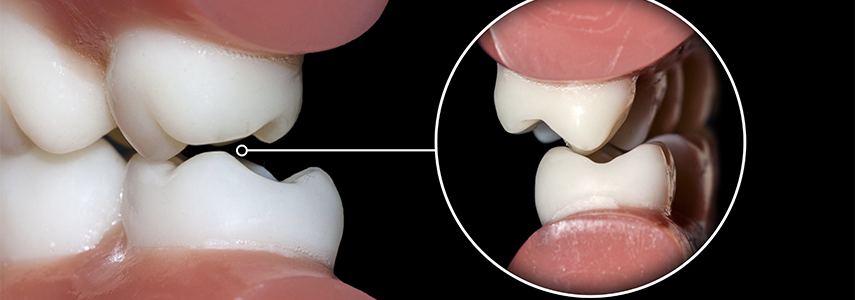Tooth erosion is a dental problem affecting 30 – 50% of deciduous teeth and approximately 20 – 45% of permanent teeth in patients worldwide.
An incidence that generates particular interest in the scientific community in the dental field and to which studies and research are being dedicated.
What does tooth erosion consist of
Tooth erosion consists of the loss of enamel due to chemical or mechanical processes, sometimes both, which cause the breakdown of hard tissues.
In the case of chemical processes, the wear of the enamel occurs due to acid substances which in fact corrode the hard tissues.
In the case of mechanical processes, tooth erosion occurs by friction and abrasion due to mechanical forces such as grinding or clenching of the teeth.
Tooth wear can occur at different levels of criticality. In the most serious cases it becomes the cause of malocclusion and dysfunction of the masticatory apparatus, with repercussions on the patient’s general health.
Can tooth wear be prevented?
In a research published in the Journal of Dentistry of August 2021, the effect on the enamel of some substances was shown for the short-term prevention of tooth erosion.
An acquired enamel film was formed in situ to conduct the study. The bovine enamel blocks were treated with the following substances:
- Group 1 – bovine enamel blocks were treated with palm oil;
- Group 2 – the bovine enamel blocks were treated with 85% tocotrienol solution;
- Group 3 – bovine enamel blocks were treated with oily vitamin E;
- Group 4 – bovine enamel blocks were treated with oily vitamin A;
- Group 5 – bovine enamel blocks were treated with deionized water;
- Group 6 – the bovine enamel blocks were treated with a solution containing a stannous compound (Elmex® Erosion Protection Dental Rinse).
After treatment with the above substances, the enamel blocks were immersed in 0.5% citric acid (pH 2.4) for 30 seconds.
The response variable was considered to be the percentage of loss of surface hardness of the enamel.
What substances help prevent tooth erosion?
Enamel blocks treated with stannous compound, palm oil and oily vitamin E had the lowest percentage of loss of enamel surface hardness.
From the data that emerged in this research, it can be concluded that both the stannous compound, both palm oil and oily vitamin E are able to protect the enamel from wear and tear on the teeth.
Vitamin E in an oily formula can be considered a promising natural alternative aimed at preventing tooth erosion and can also be contained in a normal commercial mouthwash.


















